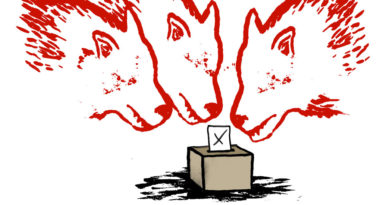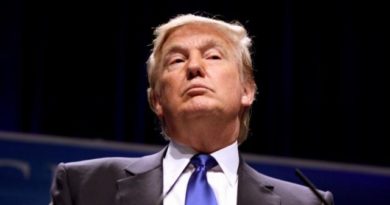Trump’s chief of staff pushed Justice Dept. to investigate baseless election fraud claims
By Karoun Demirjian and Josh Dawsey,
Jabin Botsford The Washington Post
Former White House chief of staff Mark Meadows sent a series of emails to the acting attorney general in the waning weeks of Donald Trump’s presidency, as part of a campaign to strong-arm the Justice Department into investigating Trump’s spurious claims of widespread election fraud.
Meadows’s emails, first disclosed Saturday by the New York Times, demonstrate how the former president’s determination to overturn his election defeat was not just a personal obsession or localized to his campaign, but an official project of the Trump White House. Attempts to reach Meadows directly were unsuccessful.
The brief but tumultuous tenure of acting attorney general Jeffrey Rosen, who led the Justice Department for only a month after his predecessor William P. Barr departed the administration in late December, was punctuated by the relentless campaign to legitimize Trump’s claims of a “stolen” election. Rosen was pressured to open an official investigation of voter fraud despite a lack of evidence — and even as Trump contemplated firing Rosen and replacing him with another Justice Department official seen as amenable to helping undermine the election results.
And then came Jan. 6, when hundreds of Trump’s supporters invaded the U.S. Capitol to protest congressional certification of President Biden’s win.
Rosen has firmly and repeatedly stated that, under his watch, no special prosecutors were appointed to look into the election and no statements questioning its results were made. But to date, he has refused to discuss the pressure he endured from the White House — or detail his conversations with Trump in the weeks ahead of the insurrection.
http://www.washingtonpost.com/video/politics/trump-tries-to-overturn-the-election-the-2020-fix/2020/11/21/5d8a6a71-d8e8-4201-88ff-918f5beed8ad_video.html
He did not respond to a request for comment Saturday. During a House Oversight and Reform Committee hearing last month, Rosen stated that the Justice Department “had been presented with no evidence of widespread voter fraud at a scale sufficient to change the outcome of the 2020 election.” When later asked whether he believed the election had been stolen from Trump, Rosen demurred, under strict orders from the Justice Department not to disclose “non-public information” and to “decline to respond to questions outside the scope of the hearing” — including any conversations with the president and his personal opinions — according to a May 9 letter obtained by The Washington Post.
Jabin Botsford
The Washington Post
Rudolph W. Giuliani, center, and then-Deputy Attorney General Jeffrey Rosen, right, await the start of a White House ceremony in July 2019.
The emails from Meadows, however, shed more light on how the campaign to squeeze Rosen progressed in the last days of December and early days of January, as Trump became more desperate to challenge the election’s outcome.
In his missives, Meadows asked Rosen to look into a series of conspiracy theories, according to details documented in the New York Times account and confirmed broadly as accurate by two people familiar with the matter, who spoke on the condition of anonymity because it remains a focus of ongoing investigations in Congress and by the Justice Department’s inspector general.
[Barr says he hasn’t seen fraud that could affect the election outcome]
One had to do with thin allegations of election fraud in New Mexico, where state officials declared the vote secure. Another relied on the assumption that military satellites being manipulated by people in Italy had been used to target voting machines and switch votes for Trump into votes to Biden. There is no evidence to suggest that is true either.
The emails, which were shared with the Senate Judiciary Committee as part of its investigation into what role the Justice Department played in challenging the 2020 election results, do not indicate that Rosen agreed to or endorsed any of Meadows’s proposed lines of inquiry. Aides to the committee’s chairman, Sen. Richard J. Durbin (D-Ill.), did not return messages seeking comment.
The White House entreaties nevertheless reveal a troubling pattern of conduct by Trump administration officials that is likely to elicit more questions on Capitol Hill, where interest in investigating and documenting the events that precipitated the Jan. 6 riot remains high, especially among Democrats, even if the forum for doing so remains elusive.
http://www.washingtonpost.com/video/politics/lawmakers-keep-pushing-for-probe-into-jan-6-capitol-attack/2021/05/30/7271565e-4d3a-4e58-8f08-22d011e4a5da_video.html
s
Last month, the Senate voted down a bipartisan effort to create a Jan. 6 commission that would have been tasked with looking into such matters, including the Trump White House’s pressure campaign on Rosen. It remains to be seen whether House Speaker Nancy Pelosi (D-Calif.) will announce an alternative course. The House is next in full session June 14.
*** This article has been archived for your research. The original version from The Washington Post can be found here ***


